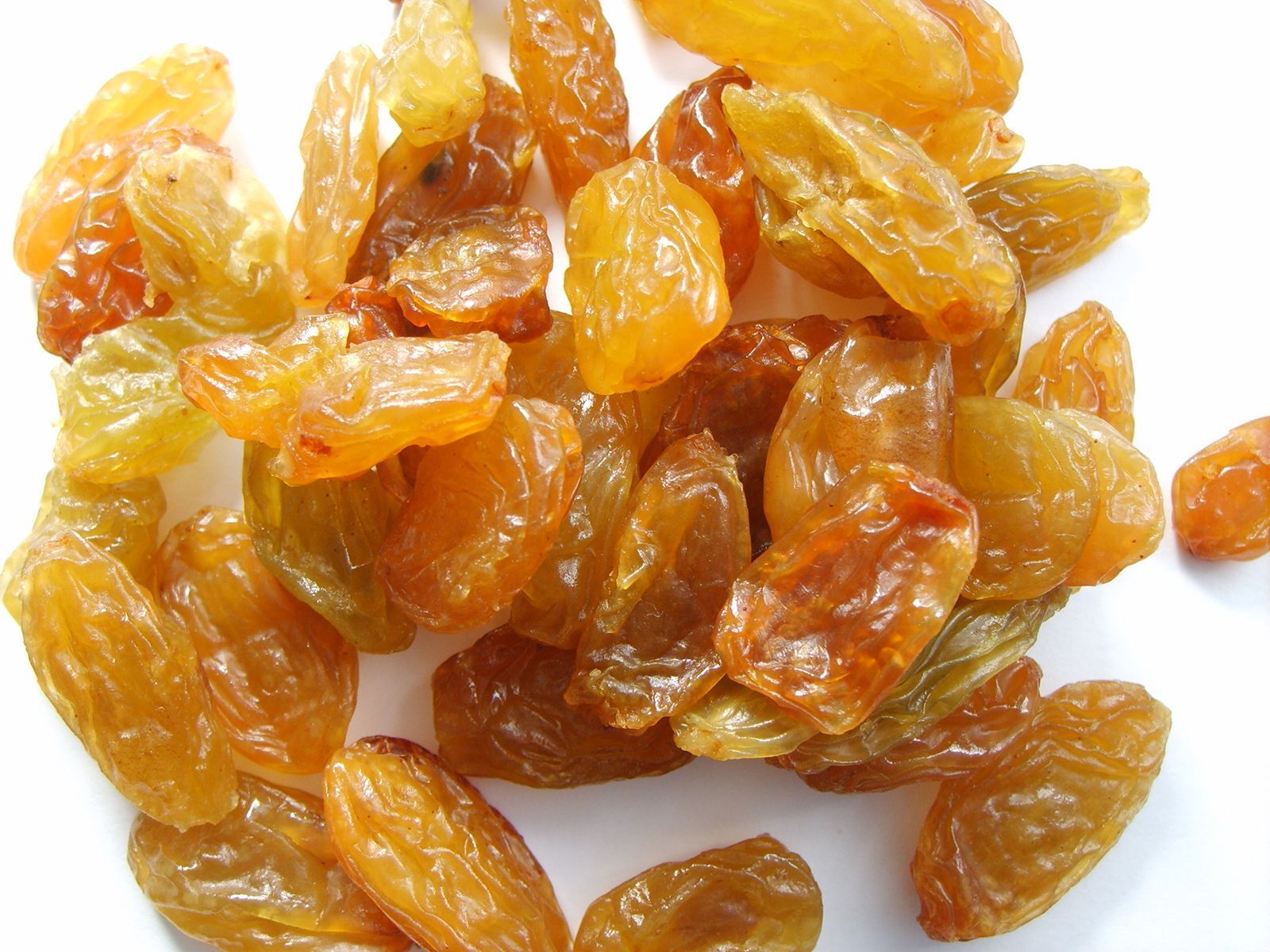
Raisins, those tiny, wrinkled fruits, pack a surprising punch of flavor and nutrition. Ever wondered what makes these dried grapes so special? Raisins are rich in antioxidants, fiber, and essential minerals. They can boost your energy, improve digestion, and even help maintain healthy bones. But there's more to raisins than meets the eye. From their ancient origins to their role in modern cuisine, these little gems have a fascinating history. Did you know that raisins were discovered accidentally when grapes were left to dry in the sun? Or that they were once used as currency? Join us as we uncover 25 intriguing facts about raisins that will make you appreciate this humble snack even more.
Key Takeaways:
- Raisins are dried grapes packed with nutrients, antioxidants, and natural sugars. They offer health benefits like improved digestion, bone health, and energy boost, making them a tasty and healthy snack option.
- Raisins have a rich history, from being used as currency in ancient Egypt to being a key ingredient in traditional holiday dishes. They can also surprise you with their versatility, from making wine to testing baking soda freshness.
What Are Raisins?
Raisins are dried grapes, often enjoyed as a snack or used in various recipes. They come in different varieties and offer numerous health benefits. Let's dive into some fascinating facts about these tiny, sweet treats.
-
Raisins are made by drying grapes in the sun or in a food dehydrator. This process concentrates their natural sugars, making them sweet and chewy.
-
The word "raisin" comes from the Latin word "racemus," meaning a cluster of grapes or berries.
-
Raisins can be made from different types of grapes, including Thompson Seedless, Flame Seedless, and Sultana grapes.
-
California produces about 95% of the raisins in the United States, with the majority coming from the San Joaquin Valley.
-
Raisins are rich in antioxidants, which help protect your cells from damage caused by free radicals.
Nutritional Benefits of Raisins
Raisins are not just tasty; they are also packed with nutrients. Here are some key nutritional benefits of raisins.
-
Raisins are a good source of dietary fiber, which aids in digestion and helps prevent constipation.
-
They contain iron, which is essential for producing red blood cells and preventing anemia.
-
Raisins are high in potassium, a mineral that helps regulate blood pressure and maintain heart health.
-
They provide a quick energy boost due to their high natural sugar content, making them a great snack for athletes.
-
Raisins are also a good source of calcium, which is important for maintaining strong bones and teeth.
Raisins in History and Culture
Raisins have been enjoyed for thousands of years and have played a significant role in various cultures and cuisines.
-
Ancient Egyptians used raisins as a form of currency and as offerings to their gods.
-
The Greeks and Romans enjoyed raisins as a popular snack and even awarded them as prizes in sporting events.
-
In medieval Europe, raisins were used to sweeten dishes before the widespread availability of sugar.
-
Raisins are a key ingredient in traditional holiday dishes like fruitcake and plum pudding.
-
In India, raisins are often used in both sweet and savory dishes, such as biryani and kheer.
Fun and Surprising Raisin Facts
Raisins have some fun and surprising aspects that you might not know about.
-
Raisins can be used to make wine, similar to how grapes are used. This type of wine is called "raisin wine."
-
Raisins can help keep baked goods moist due to their high sugar content, which attracts and retains moisture.
-
Raisins can be rehydrated by soaking them in water or other liquids, making them plump and juicy again.
-
Some people use raisins to test the freshness of baking soda. If the raisins float in a glass of water with baking soda, the baking soda is still active.
-
Raisins can be used as a natural sweetener in recipes, reducing the need for added sugars.
Health Benefits of Raisins
Beyond their nutritional value, raisins offer several health benefits that can improve your overall well-being.
-
Raisins contain boron, a mineral that supports bone health and helps prevent osteoporosis.
-
They have anti-inflammatory properties, which can help reduce the risk of chronic diseases like heart disease and arthritis.
-
Raisins can help lower cholesterol levels due to their high fiber content.
-
Eating raisins may improve oral health by reducing the growth of harmful bacteria in the mouth.
-
Raisins have been shown to help regulate blood sugar levels, making them a good snack option for people with diabetes.
Raisins: Tiny Powerhouses
Raisins pack a punch. These dried grapes are not just sweet treats but also nutrient-rich snacks. Full of fiber, iron, and antioxidants, they support digestion, boost energy, and help fight free radicals. Their natural sugars make them a great alternative to processed sweets. Plus, they’re versatile—toss them in salads, bake them into cookies, or enjoy them straight from the box.
Despite their small size, raisins have a big impact on health. They can help lower blood pressure, improve bone health, and even aid in weight management. So next time you’re looking for a snack, consider reaching for a handful of raisins. They’re not just tasty; they’re a smart choice for your body.
Frequently Asked Questions
Was this page helpful?
Our commitment to delivering trustworthy and engaging content is at the heart of what we do. Each fact on our site is contributed by real users like you, bringing a wealth of diverse insights and information. To ensure the highest standards of accuracy and reliability, our dedicated editors meticulously review each submission. This process guarantees that the facts we share are not only fascinating but also credible. Trust in our commitment to quality and authenticity as you explore and learn with us.


